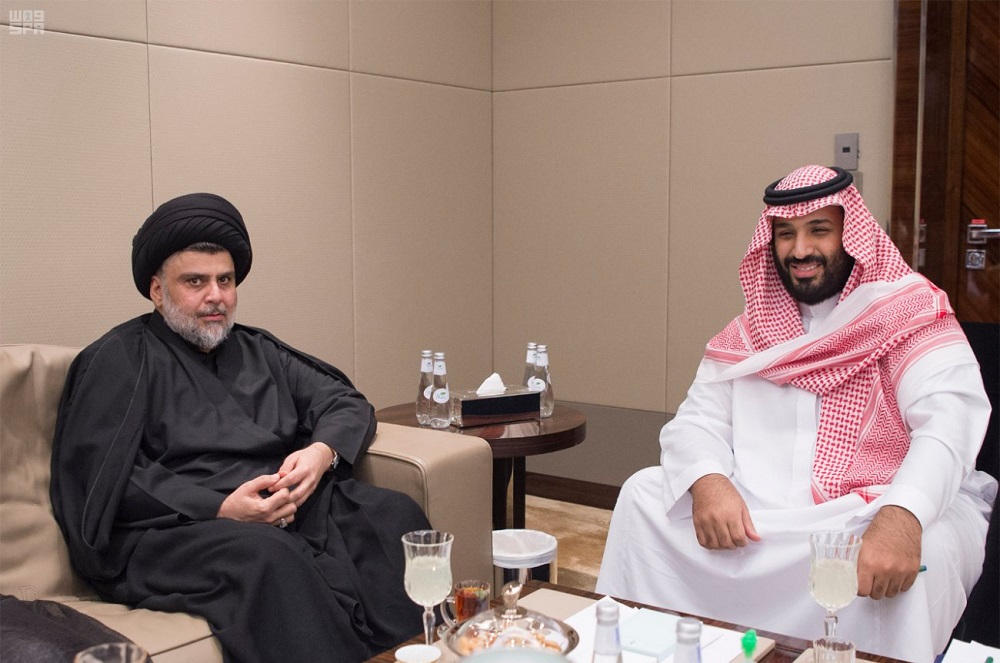The images of the Iranian regime’s hegemony over all aspects of life in Iraq are clear. From trade to construction and raw material to its control of the banks, government, parliament and political parties. A New York Times report said that the Iranians are controlling everything, from the television stations to the drug trade.
Iran is trying to justify its presence and control by saying that Iraq needs it and that without it, it will collapse, even claiming that it liberated the city of Mosul from ISIS.
This is not true as the battle was primarily waged by the Iraqi army with US support.
Iran has however been working on building its power and presence in Iraq for 14 years, until it has now become its high ruler. The majority of Iraqi politicians, including Sunni Arabs, Turkmen and Kurds, who are familiar with the road to Tehran, head to it to receive the support and approval of its leadership. This is similar to how Lebanese politicians used to head to Syria to receive the blessing of the president in Damascus.
In light of this Iranian hegemony, we witnessed the brave visit of Sayyed Moqtada al-Sadr, one of the most influential figures in Iraq, to Saudi Arabia. The visit confirms claims that he rejects this hegemony and instead insists on the independence of the Iraqi voice. It also comes as a challenge to politicians, such as Nouri al-Maliki, the current Iraqi vice president, who previously served as the worst prime minister in its history.
Sadr’s stance and that of a number of Iraqi leaderships is not based on rejecting good ties with the neighbor, Tehran, but it is against its tutelage. They oppose its control over resources and the authorities. They oppose altering the course of the river on the border and drilling for petrol in nearby areas. They oppose exploiting Iraqi companies and banks for secret and internationally-barred Iranian transactions. They oppose the formation of Iraqi militias outside the control of the state. They oppose the meddling of the Iranian Revolutionary Guards in the Iraqi government and parliament, the appointment of governors and heads of municipalities, the management of state media and crack down on the private media.
Iraq is a great country and not a banana republic for an extremist religious regime in Tehran that is milking it financially in order to fund its military adventures in Syria, Lebanon and other areas.
Iraq today, under the hegemony of the Iranian Revolutionary Guards, is a poor country by all standards, not due to a lack in financial resources, but due to the major corruption in its institutions and Iran’s looting of these resources.
It is in the interest of the countries in the region, such as the Gulf Cooperation Council (GCC), to support the independence of Iraq and make its people feel that they are not alone. I reiterate my old position that the GCC policy of disassociation was wrong as it facilitated Iranian meddling and allowed it to expand its influence. Looking at Iraq through a sectarian lense is a wrong interpretation of the political situation on the ground and demonstrates a lack of understanding of the political and social dynamic there.
Sadr’s visit to Saudi Arabia was preceded by one paid by Iraqi Prime Minister Haidar al-Abadi. This opened the doors that had been previously shut towards a positive and significant political shift towards the neighbor in the north.
It is natural to wonder if the Iraqis can confront Iran, which is clamping down fiercely on northern Syria, without caring for the horrible massacres committed by its militias there.
Saving Iraq is a mission tasked to the country’s nationalists regardless of their affiliations. Countries in the region are also responsible for taking a clear stance against the hegemony of the Ayatollah regime’s institutions, such as the Quds Force, on Iraq’s state institutions and political parties.
Iraq is a rich country by itself. It does not lack major resources like Syria and Yemen. It is capable of regaining its authority once the nationalist Iraqi leaders raise their voice loud for everyone, including Iran, to hear.
The Iraqis need to the world to listen that they will combat the Iranian hegemony and kick out the Revolutionary Guards from their land. This is a mission for the Iraqis, not the Gulf, Arabs or anyone else.
